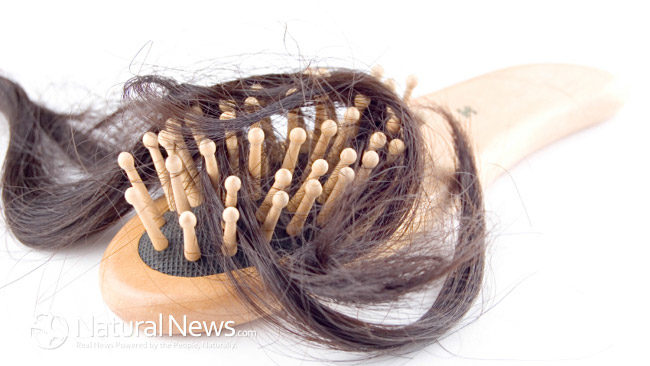Our self-esteem is intrinsically tied to the way we look – and the way we look is to a large part dependent on having a healthy head of hair. Both men and women spend vast sums of money having their hair cut, coloured, curled and straightened – because it’s practically the first thing we notice about anybody. So when anyone, either a man or a woman, starts to lose their hair, for whatever reason, the effect can be devastating.
Hair loss can be caused by a variety of different factors, though the most common one – male pattern baldness – is caused by genetic and hormonal influences that are beyond our control. The best way to treat hair loss, of course, depends upon the cause, so if you notice that you’re losing your hair, it’s time to turn detective and work out why before rushing for a solution.
Here are some of the other most common causes:
- Excess Vitamin A – if you’re taking more than the recommended dose of Vitamin A, you may find yourself shedding hair. Check your supplement with a doctor or nutritionist.
- Hypothyroidism – if your thyroid is under-active, one of the symptoms may be hair loss. Blood tests can check if this is the case and synthetic thyroid medicine will be used to solve the problem.
- Pregnancy – nine months of hormonal disruption can play havoc with hair and many women suffer hair loss after giving birth. However, it does grow back.
- Birth control pills – going on or off the pill, or switching brands, can result in hair loss due to changes in the hormonal balance.
- Dramatic weight loss – whether desired or not, rapid weight loss may have an effect on your hair, though it won’t be permanent.
- Physical stress – accidents and illnesses take a toll on the body and one effect can be hair loss, sometime after the fact. Luckily, this is usually a temporary issue and the hair will simply grow back.
- Emotional stress – this is less likely to cause hair loss than physical stress but a particularly traumatic event such as divorce or bereavement can trigger it.
- Vitamin B deficiency – this is rare in the developed world but may be a factor.
- Menopause – the change in hormone levels brought about by the menopause can lead to hair loss in women. HRT may help.
- Anaemia – this is one of the most easily remedied causes of hair loss. If you think you might be iron deficient, ask for a blood test.
- Androgenic alopecia – this is the female equivalent of male pattern baldness and is driven by genetics. Like male pattern baldness, topical creams and drugs may help.
- Alopecia areata – this is when the immune system declares the hair to be the enemy! Steroid injections may help. Lupus is another immune system condition that may result in hair loss.
- Protein deficit – too little protein in your diet will leave your body no choice but to cut back on hair growth. Vegetarians and vegans may need to check their protein levels if hair loss becomes an issue.
- Chemotherapy and other medications – the effects can be dramatic but temporary.
- Trichotillomania – a nervous habit of pulling out one’s own hair.
For further reference read the following:
The Nutrition Desk Reference by Robert Garrison & Elizabeth Somer
The Textbook of Natural Medicine by Joseph Pizzorno & Michael Murray
About Author:
NiceHair is a hair loss prevention specialist website featuring tips, tricks and advice on hair loss prevention, interviews, healthy eating, delicious recipes as well as beauty tips, reviews and lists of effective supplements for hair growth. For more information please visit nicehair.org and get in touch.





